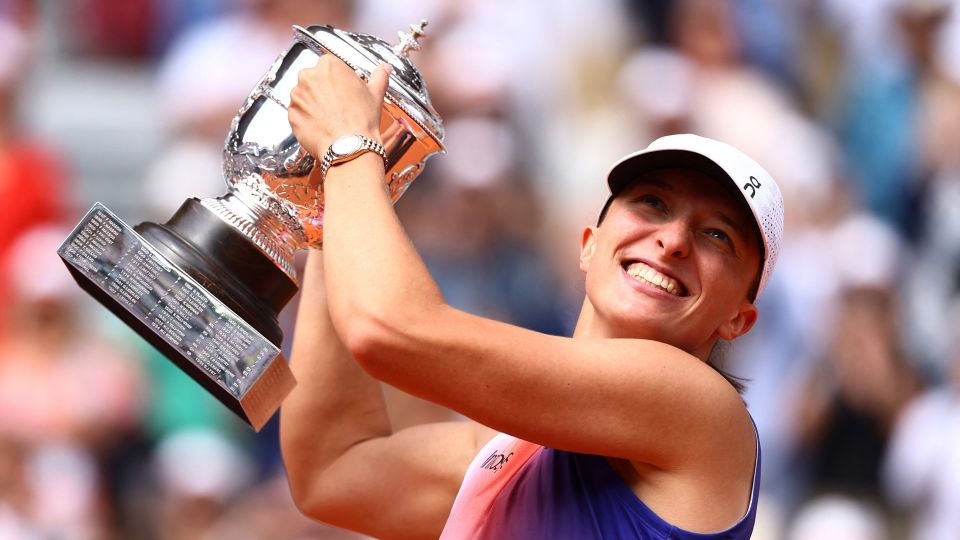In Paris, Iga Swiatek took a significant step towards her potential fourth consecutive (and fifth overall) French Open title, securing a victory over Elena Rybakina with a score of 1-6, 6-3, 7-5 on Sunday.
Swiatek, who had not shown her best form this year (her last final was here at Roland-Garros a year ago), was trailing by one set and 0-2 at the start of the second set, but managed to find her game at the crucial moment and advance to the quarterfinals, where she will face Ukraine`s Elina Svitolina.
How did she manage it, and what does this win mean for her? Here are three key takeaways from this potentially turning-point match.
Swiatek Improved Her Serve
Rybakina, a former Wimbledon champion and winner in Strasbourg just before Roland-Garros, started the first set strongly, hitting 12 winners and constantly pressuring Swiatek. The main issue for Iga was her serve—an element she`s actively working on with coach Wim Fissette, but which has been inconsistent on clay this season. While the first five games quickly slipped away, Swiatek`s first serve percentage was well below 50%, and on her second serve, she won only 20% of points. Towards the end of the set, she managed to stabilize slightly and win at least one game, but her serve was clearly letting her down. In the second set, she reduced the pace of her serve, adding more angle and using more body serves, and as Rybakina`s level dropped slightly, Swiatek began to work her way back into the match. By the end of the match, her first serve percentage rose to 57%, while Rybakina`s dropped below 50%, allowing Swiatek to engage in rallies more successfully and turn the tide of the game.
Swiatek Showed Patience and Added Spin
During her challenging performances this spring (early exits in Stuttgart, Rome, and a significant loss to Coco Gauff in Madrid), Swiatek`s game tended to fall apart in difficult situations. But this time, despite moments of frustration directed at her team, she remained calm enough to think clearly and make adjustments. By positioning herself deeper on returns, she was able to engage better in rallies on Rybakina`s serve and effectively use her crosscourt forehand, pulling her opponent wide. At 2-2 in the second set, she endured three consecutive double faults on the advantage court to hold her serve and lead in a set for the first time; from that point, her confidence began to grow. Even at 4-4 in the deciding set, when she thought she had broken serve only for a Rybakina double fault to be corrected by the umpire after checking the mark, she stayed patient. In the next game, she held her serve to love, then broke at 6-5, and confidently served out the match for the victory.
What This Means for Swiatek
Everything. Sometimes it only takes one moment, one significant result, to completely turn a player`s season around. The way Swiatek celebrated the victory, with her final forehand speeding away for a winner and a double fist pump, conveyed a mix of joy and relief. A month ago, such a match might have been lost quickly, but this time we saw the old, familiar Swiatek: powerful forehands with heavy spin, the ability to find solutions in challenging situations. When Rybakina defeated Jelena Ostapenko (whose 6-0 head-to-head advantage over Swiatek would surely have been on Swiatek`s mind had they met in Paris), it might have seemed like luck. But a win against Rybakina, who had beaten Swiatek in four out of eight matches, won both their previous clay encounters, and was playing incredible tennis, could be the victory that starts restoring her aura of invincibility. Swiatek`s main rivals for the title, who arrived at the tournament sensing her vulnerability, will certainly take notice.

